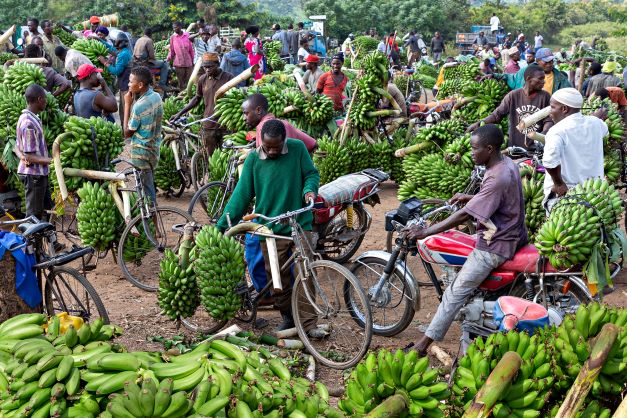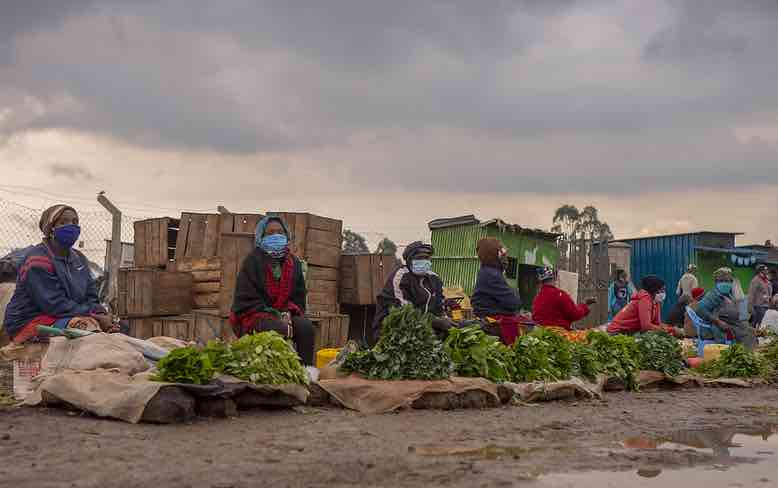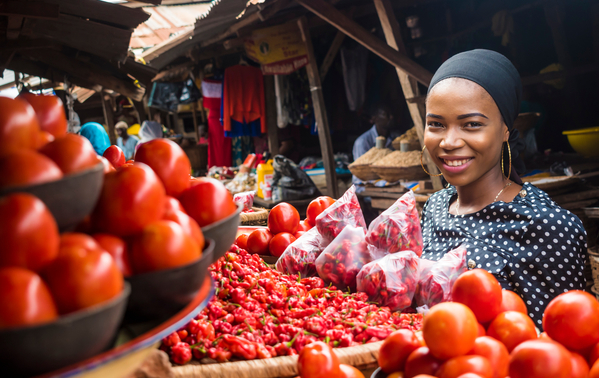 In the third of a four-part blog series following the UN Sustainable Development Solutions Network, Foresight4Food, IFAD and APRA eDialogue session on the future of small-scale farming, Jemimah Njuki, the International Food Policy Research Institute’s Director for Africa, reflects on the discussion and emphasises the importance of this sector’s social dimensions.
In the third of a four-part blog series following the UN Sustainable Development Solutions Network, Foresight4Food, IFAD and APRA eDialogue session on the future of small-scale farming, Jemimah Njuki, the International Food Policy Research Institute’s Director for Africa, reflects on the discussion and emphasises the importance of this sector’s social dimensions.
Written by Jemimah Njuki
In all meetings I now attend regarding African small-scale farming, including the Regional Perspectives eDialogue session, I consistently highlight a key issue: the social dimension of smallholder farming from a gender and youth perspective. There is a need to change our approach to women and youth in agriculture. We need to stop thinking that the solution to making agriculture more accessible and inclusive is to ‘fix’ women and youth. Women and youth are already capable and are working in the sector, ready to step into larger roles. Instead, we need to fix those issues and systems that are holding them back. The meaningful inclusion of women and youth in agriculture is something I am very passionate about, and I believe that any discussion surrounding the future of smallholder farming in Africa would be remiss to not include women and youth in that future.
Engaging with women and youth
One of the things we know is that a sustainable and inclusive smallholder agriculture sector is only going to be possible if women and youth everywhere that are engaged in agriculture are empowered, and their rights recognised and respected. But, when we speak about smallholder agriculture, we are often characterising it based on either land size or farm size, and really ignoring some of the huge differences that exist, based on whether these farmers are male or female and young or old, as well as who is managing the farms, where they’re sourcing their labour and how much labour they have. These are dimensions that we really have to critically think about because otherwise, we are missing some of the trends that are happening. For example, contrary to the current narrative, which says that the age of the African farmer is between 50 and 60, the demography of smallholder farmers is changing and more young people are engaged in agriculture and agriculture related activities. A few years ago, the International Development Research Centre did some research and found that only 11% of youth were interested in agriculture in the region. Conversely, more recent studies are showing that the average age of the farmer is between 34 to 45 years. Thus, we really need to look at some of the social dimensions of agriculture because some of these groups face very specific challenges that are often being overlooked.
Women, for example, are often lacking access to productive resources, agricultural inputs information, finance, services, markets, social protection, as well as technological and entrepreneurial know-how. Women are also typically the primary caretakers in their households, which means they face heavy workloads that undermine their productive capacity and overall well-being, particularly in the wake of COVID-19. Additionally, harmful social norms and stereotypes on what women can or should do persist in many parts of the world. With regard to youth, the intergenerational transfer of land is no longer happening, so a lot of young people are often farming on land that they have no claim to. This is affecting young women more.
Missing voices
We know that when women and young people have better access to resources, services, economic opportunities and decision-making, communities have more food, their nutrition status improves, rural incomes increase, and food systems become more efficient and sustainable. It becomes clear, then, that while women and youth in the region need agriculture, agriculture in Africa also needs young men and women. Yet, they are often missing from the policy discourse and large programmes in agriculture. We really need to think critically about why their voices are missing, and why we are still talking about smallholder farms as though they are only defined by the size of their land. We need to start fixing some of these issues and making sure women are visible, we need better defined evidence on how men and women are treated differently in the agriculture sector and how different agricultural policies are affecting them. We need to recognise the underlying assumptions and stereotypes of women that are embedded in agriculture policies and how these are impacting women and agriculture. For the development of smallholder agriculture, we need to make these policies more gender responsive and then take the next step to implement them.
So in other words, we need to fix the smallholder agriculture sector so that it’s working for everybody, and we need to start redefining some of the social characteristics of smallholder agriculture beyond their smallness, or the size of their land.
We also need to take decisive action. It is only through changing the gendered rules, both formal and informal, that create and reinforce these inequalities, including access to resources, income, and degrees of authority for men and women, that women and youth will be able to work as leaders in this sector and allow it to achieve its full potential moving forward.
To learn more about the eDialogue series, click here
To download a printable PDF version of this blog, click here
This blog is originally posted at future agriculture website



